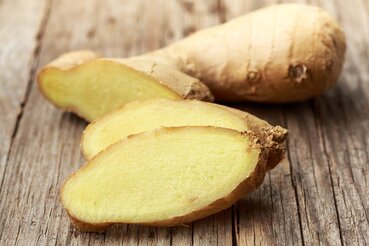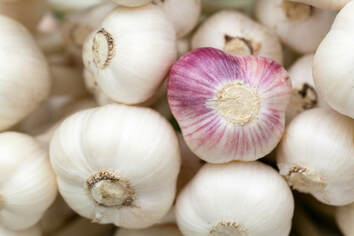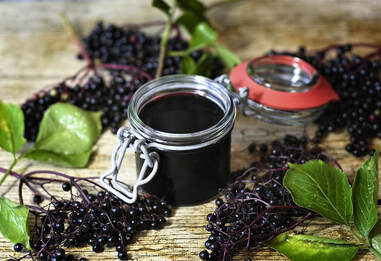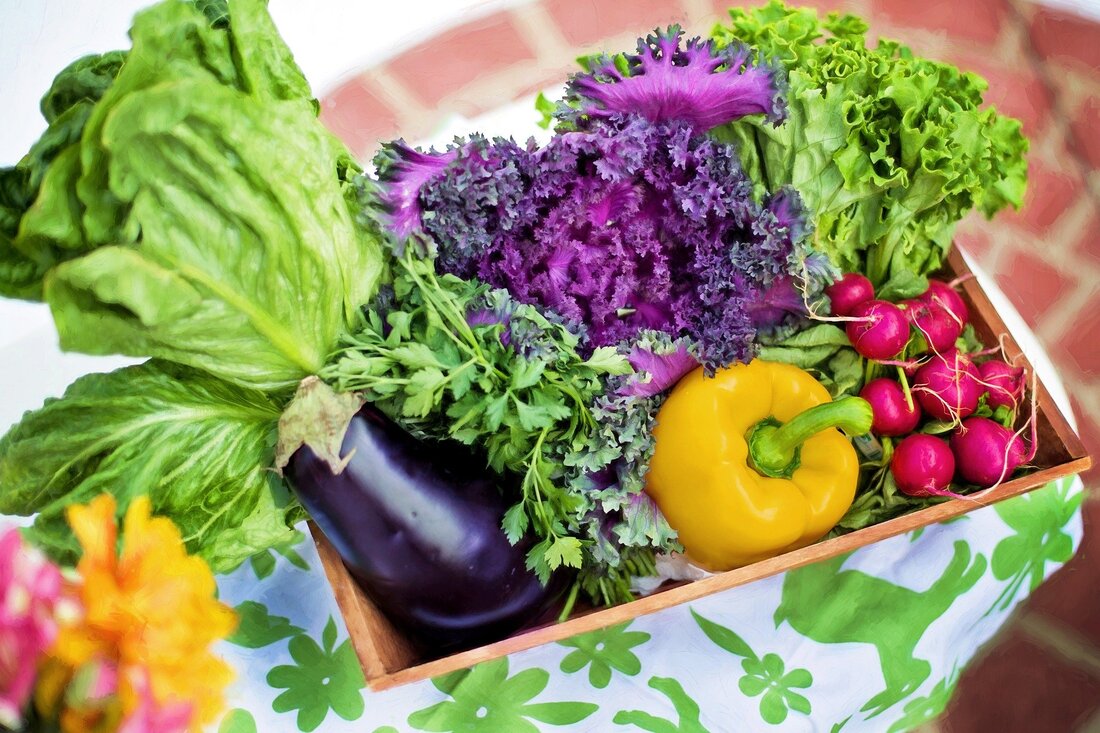|
Right now, most of us are looking for ways to protect ourselves and others from the new coronavirus, COVID-19. There is lots of sensible advice from the CDC regarding hand washing and social distancing, but beyond that, is there anything more we can be doing to defend ourselves against the virus? There is a fair amount of well-intended advice circulating the internet right now, including some wild wellness claims and some overly cynical debunking pieces, making it hard to know what advice to follow and what to ignore. Unfortunately, because this virus is new, we simply cannot know conclusively what may or may not work against it, yet. What we can do is to support our immune systems and take good care of ourselves, because the healthier we are, the better equipped we are to deal with any illnesses going around. Looking at the research we do have, there are a few key ingredients that have consistently shown themselves to be a useful defense against other pathogenic viruses and bacteria, as well as helping to soothe symptoms of respiratory tract infections. These ingredients are all things that you can find at the grocery store, or you may already have in your kitchen. To be clear, this is not intended to mean that consuming these things will guarantee you protection against COVID-19 (right now nothing can make that claim) but they may be helpful and they aren’t likely to be harmful*, plus, taking an active role in your health is empowering - an important factor in staying sane during these uncertain times! Ginger HOW TO USE: You can use fresh or dried ginger in your cooking, or brew a ginger tea: boil 5-6 slices of fresh ginger in 2 cups of boiling for 10 minutes, then strain. Serve with a slice of lemon and a tsp of honey for a warming beverage to soothe symptoms. Ginger (Zingiber officinale) is an effective antimicrobial and anti-inflammatory with diverse uses. We usually hear about its digestive benefits, but it may also support lung health: ginger also acts as a bronchodilator, opening up the airways and reducing inflammation, which could be helpful for those prone to wheezing (1). Lab studies also show that it is effective against various multi-drug resistant strains of bacteria, both gram-negative and gram-positive species (2), as is garlic (see below). As for viruses, fresh ginger has been shown to be effective against respiratory syncytial virus (RSV), blocking it from attaching to respiratory mucosal cells (3). Garlic HOW TO USE: Raw garlic is best! Try adding it to salad dressings, guacamole or hummus. When cooking with garlic, let it sit for 10-15 minutes after crushing it: this allows more of the cold-fighting compound, allicin, to be released. Garlic (Allium sativum) is another powerful antimicrobial and immune support ingredient that has been shown to both prevent colds and reduce the severity of symptoms (4). Clinical trials have found that garlic extract (allicin) stimulates natural killer cells and T cells (5), important players in the immune system which can help us ward off pathogens; allicin also inhibits a bacterial species that can cause serious lung infections (6). A combination of garlic and honey was shown to be effective against five different strains of bacteria that cause respiratory tract infections, including pneumonia and influenza, and the garlic treatment was more effective than antibiotics in some instances (7). Garlic extract has also proven itself useful against infectious bronchitis virus (another coronavirus) in a laboratory setting (8). Fermented foods HOW TO USE: Probiotic supplements are very popular, but you can also enjoy naturally occurring probiotics in foods and beverages like yogurt, kefir, kombucha tea, miso, sauerkraut, kimchi and pickles. Look for truly fermented products in the cold case - shelf stable products are usually in vinegar or brine. Or better yet, make your own! Fermented foods contain probiotics - an essential part of a healthy immune system - and emerging evidence suggests that they may also help to ward off colds and flu. A comprehensive review of multiple clinical trials found that, overall, people taking probiotics got fewer upper respiratory tract infections than those taking a placebo, and they also used fewer antibiotics as a result (9). In a more recent clinical trial, supplementation with the specific strain Bifidobacterium bifidum significantly reduced the number of ‘cold’ days experienced by students compared with a placebo (10). Chicken broth HOW TO USE: Drink a mug of hearty homemade chicken broth in place of tea or coffee, or use it as a base for soups and stews. If nothing else, curling up with a steaming cup of soup (or any other warm drink) can clear the nasal passages, soothe a sore throat, and thin the mucus causing your congestion. Chicken bone broth has long been considered a comforting cold remedy, and we’re now finding there may be some scientific basis to this. Lab studies show that chicken broth can inhibit growth of viral cells (11), and it has an anti-inflammatory effect that might explain its soothing quality. Chicken broth contains the amino acids cysteine and glycine (among others), both of which are needed to make the most abundant antioxidant in the lungs, glutathione, which is being explored as a treatment for various lung diseases (12). Individually, the supplemental form of cysteine (NAC) has been shown to reduce symptoms of chronic bronchitis and COPD (13), and dietary glycine can protect against lung inflammation in animal studies (14). Finally, broth is full of electrolytes which help us to stay hydrated. Elderberry syrup HOW TO USE: Drink a spoonful of elderberry syrup daily to ward off viruses, and up to four doses per day when you’re suffering with the sniffles. For a warming drink, dilute 2 tbsp with 6oz hot water. You can make your own (recipe available), or buy from your local health foods store. Elderberry (sambucus nigra) is an effective anti-viral, containing numerous bioflavonoids and anthocyanins, as well as vitamin C. It has traditionally been used to fight colds and flu, and modern science now supports its use. One clinical trial found that consuming elderberry syrup shortened subjects’ flu duration by an average of four days (15) while an in vitro study found it to be effective against four strains of bacteria known to cause upper respiratory infections (16). Honey HOW TO USE: Try a teaspoonful of honey before bed, or mix with a little bit of water and gargle to coat the throat (but don’t dilute too much to retain maximum benefits). Look for raw honey (cloudy appearance and unpasteurized) where possible as it has more nutritious minerals and antioxidants. Honey is as effective - and sometimes more effective - than over the counter cough syrups at reducing coughing episodes (17); the National Health Service in the UK found the evidence to be so compelling that it recently changed its recommendations to using honey as a first line treatment for coughs. Honey is also a powerful antibacterial: one lab study found that honey killed off all strains of bacteria tested, including those causing upper and lower respiratory infections like strep throat and pneumonia (18). Use these ingredients in the context of a nutritious dietThe medicinal ingredients above are going to be most health supportive in the context of a nutritious, balanced diet. Aim for plenty of plants every day (vegetables and fruits, whole grains, beans and legumes, nuts and seeds), as these contain a broad spectrum of vitamins and minerals essential for health. Include fatty fish for the anti-inflammatory omega-3 fats and high quality dairy products and eggs as a good source of minerals and protein. Pasture-raised meat and poultry are also a quality source of protein, minerals and some vitamins, if you choose to include them in your diet. The closer to nature your food is, the more nutritious it is likely to be. Fresh foods can be challenging to source and store during quarantine, and processed foods have a longer shelf-life, so it’s tempting to stock up on those. Consider bulk purchases of beans (dried or canned) and grains (oats, rice, quinoa, millet), canned fish, nut butters, shelf-stable oils (olive, coconut and ghee), canned tomatoes, raw honey, frozen fruits and vegetables, as well as lots of interesting dried herbs and spices. These will last indefinitely and still offer lots of nutrients to keep you healthy. Nuts will last a few months and seeds around six months in the pantry, and twice that if in the refrigerator. As for fresh vegetables and fruits, root vegetables (potatoes, carrots, beets, yams), onions and garlic, winter squash, Brussels sprouts, cabbage and apples will all last a while if stored properly. With a little bit of planning and creativity, you can keep yourself and your family well-fed and well-nourished with minimal trips to the store during this quarantine! Part 2 will delve into the research on specific nutrients (vitamins C & D, zinc, and more) that may support your immune health, and whether they might be useful during the COVID-19 outbreak. Check back soon! * Double check with your doctor or health care professional if you have chronic health conditions or take medications to ensure suitability. References |
AuthorHi, I'm Amy. I'm a nutritionist in the DC area, working with clients of all ages, focusing on prenatal and pediatrics. I'm all about straightforward, evidence-based health & wellness advice - because life/parenting in the modern world is complicated enough! Categories
All
November 2022
|
Seed to Sapling Nutrition



 RSS Feed
RSS Feed